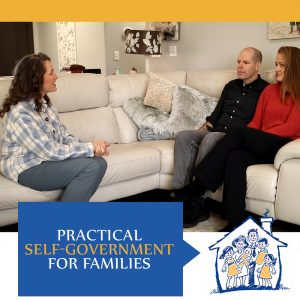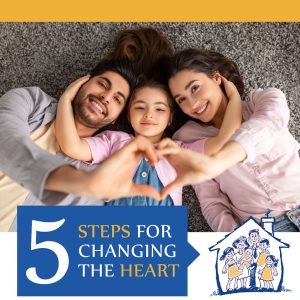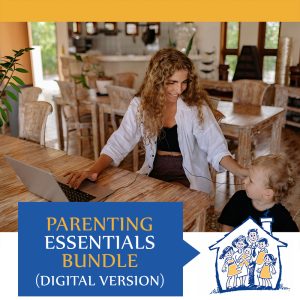Teaching Your Child to Listen to You, Every Time
Recently a woman who was asking for my advice said, “My 10-year-old son, Benjamin, will not do what I say. I know he hears me but he just ignores me when I talk to him. How can I get him to listen to me? I know I shouldn’t feel this way, but it’s like his heart is hard or something. He doesn’t seem to care about helping out or listening to me at all.”
When this woman shared her frustration with me, I knew exactly what it felt like to feel ignored by a child. When my oldest daughter was three years old I took her to an ear doctor for a special examination. I wanted to make sure she really could hear me because she seemed to tune me out every time I started telling her something she needed to do.
After a very thorough examination, the doctor looked at me, smiled and kindly informed me, “Ma’am, your daughter has perfect hearing. She is just doing what lots of children do. She is having selective hearing. I don’t know what to tell you to do about it because it’s a really common thing for kids to do. I think in time she’ll outgrow it.”.
At this point I was doing foster care and diligently teaching what we called the Four Basic Skills to my foster children. Every one of those four skills starts with the step, “look at the person.” This step is the first step for each of the skills so that the child and parent establish a connection with each parenting interaction. It also shows the child is ready to listen. At first the parent must teach the child to deliberately look at them as part of the interaction.
That afternoon, while correcting my foster daughter for not looking at me when I was giving her an instruction, it dawned on me that I wasn’t making sure my young daughter and I had eye contact every time I was giving her a, “No,” answer or an instruction. I was getting lazy. I was not connecting with her eyes, which would make it impossible to touch her heart.
Windows To The Soul
There is an old saying that goes, “the eyes are the windows to the soul.” This is true. When two people’s eyes meet the truth about that person is instantly felt. The person’s goodness and potential is seen and the love each person has or doesn’t have for each other is felt.
It was a surprising realization to me that I was looking at my foster children in the eye far more often than I was looking my own youngsters in the eye. In fact, this touched my heart. I decided to focus more on looking in everyone’s eyes, not just my foster children’s eyes.
Day after day, as my foster children would struggle to conquer their difficult addictions and behaviors, I would correct them, praise them and teach them as I looked into their eyes with love. I would consciously think of sending my love from my heart to their heart as I helped them make the changes they needed to make for personal freedom and happiness.
To make this big change I had to train myself to stop from talking before I started. This is how it went for me: I felt like I wanted to tell my daughter something. I would stop and tell myself to first establish eye contact. Next, I went to my daughter and told her to look at me. Once she was looking at me, I would praise her. Finally I would instruct her while looking in her eyes. She would say, “Okay, Mommy!” and run off to do her task.
This little change I made in myself created a huge change in her ability to listen and follow through.
I’m quite sure this deliberate connection step in the interactions with your son will have a similar effect. I have seen amazing results for many years now.
Your son doesn’t have a hard heart; I would bet he just isn’t feeling his heart touched by your heart as often as he needs to.
This is just another every day example of how teaching children to have self-government first starts with parents more deliberately controlling themselves. That small moment to gain good eye contact will strengthen bonds and decrease frustration.
Note: If your child has a hard time looking people in the eye due to autism or something similar, then teaching him to touch your hand while listening to you can have a similar effect.
Learn more about the Four Basic Skills and teaching children self-government in Parenting A House United.






